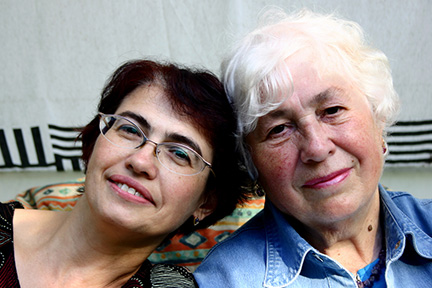
As my mother's vascular dementia worsened, her gerontologist at the time prescribed antipsychotic medications to relieve her anxiety and restore some semblance of order to her everyday life.
As with most family members of memory care patients, dementia was a new frontier for us, and although we quickly became immersed in the current research and familiar with the terminology and treatment options, we relied on the advice of her doctor regarding specific medications and dosages.
What most people don't immediately understand is that a person with memory care challenges can't give you an accurate description of how a drug is affecting her. She may not even remember she is taking medication, much less realize the impact it is having on her overall well being.
She did become less anxious, so by the physician's measuring stick, the prescribed medication was doing its job. But a physician doesn't see a patient on a daily basis, and unless he is communicating with the nursing staff (or the family) regularly about potential side effects, a medication may be causing as much damage as benefit.
In my mother's case, the damage didn't occur immediately. But a week or so after beginning new medications, she gradually became dizzy, unsteady on her feet, lethargic and mildly depressed. The tendency is to dismiss these reactions as symptoms of the disease, not side effects of the medicine. But re-evaluating the medicine is a good place to start.
We asked my mother's doctor to reduce the dosage of the anti-psychotics he had prescribed. He eventually took her completely off one of them. She quickly "normalized." The dizziness went away. She was able to walk without undue fear of falling. And the lethargy and depression dissipated.
Just because your loved one is under the care of a physician that you trust and in a senior community that is professional, caring and well staffed doesn't mean that your responsibilities for her welfare have lessened. They have only changed. You can't expect a doctor, nurse or care associate to know the nuances of your parent's health as well as you do. Be aware, be loving and be vigilant. You are now the advocate for your parent's life.
